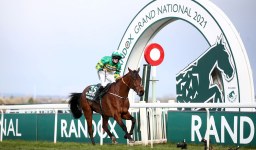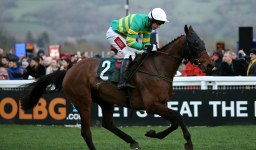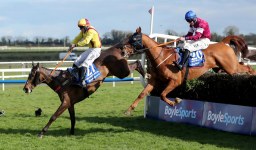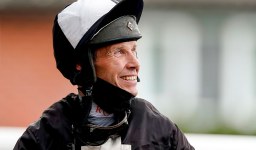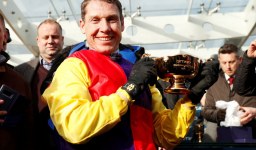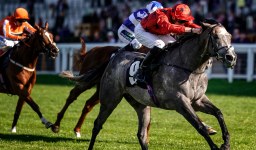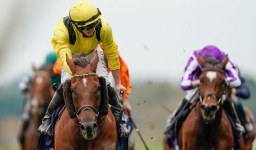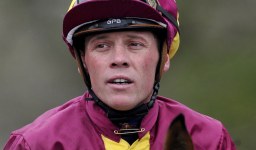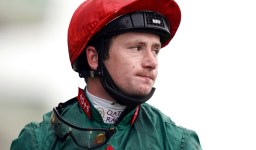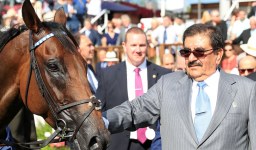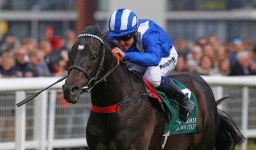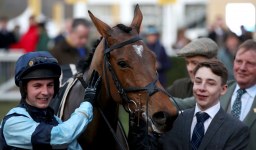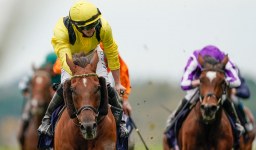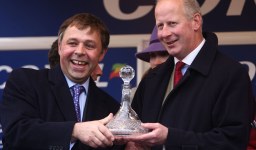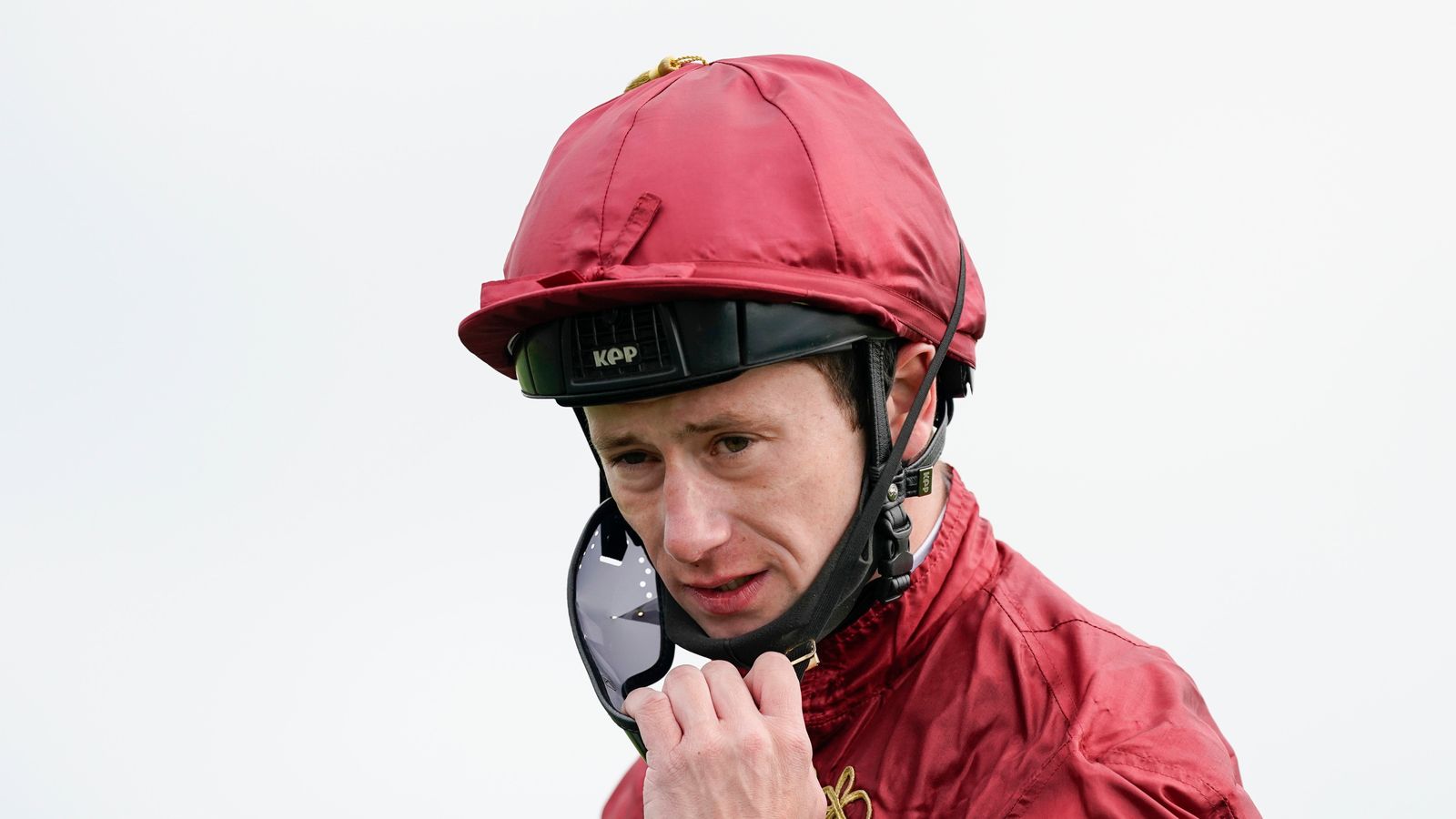
Oisin Murphy admitted he thought about quitting racing altogether while serving a drugs ban.
The champion jockey was banned for three months in November after a racecourse test, taken at Chantilly in July, found traces of cocaine in his system.
Having always strenuously denied he had taken any drugs, Murphy requested a B sample – and upon receiving the results, France Galop held a hearing where the rider’s defence of environmental contamination from a sexual encounter and scientific hair test evidence was accepted.
Murphy’s three-month suspension took into account his defence, and is due to expire on March 11.
That will mark the end of a period where the 25-year-old Irishman said he felt his mental health deteriorate to the extent that he began to question whether he would return to the sport at all.
Speaking on the My Sporting Mind podcast, he described the experience of awaiting the judgement and the subsequent effect on his performance.
He said: “The first time I realised I was facing a suspension was August, and I didn’t know when I was going to be suspended and for how long, so that was quite stressful.
“I didn’t ride very well. On average I ride between 15 and 22 per cent rides to winners, in August that took a major dip and as a result my confidence and my whole outlook on life did as well.
“I remember not sleeping for days on end – I might get an hour here and wake up there, your mood changes and you don’t want to speak to anybody.”
At that stage Murphy was still leading the British Flat jockeys’ championship, a title he was attempting to defend having first won it in 2019.
After a decline in form as the case took its toll, Murphy found rivals William Buick and Tom Marquand were both beginning to gain ground at the top end of the table.
“I had led the whole way from the flag fall in this jockeys’ championship, which means so much to me,” he said.
“It’s like winning the Premiership in football or like being Lewis Hamilton in Formula One. I’m not suggesting horse racing is any way like that, but for me, that’s how important it is.
“I knew I had great people behind me, from Qatar Racing, who employ me, to all the people who put me on these majestic animals on a day-to-day basis, but not everyone was fighting my corner, it was still very much up in the air.”
Ultimately Murphy did triumph, riding eight more winners than Buick and gaining a much-needed boost to his confidence in the process.
“I thought the season was going to be defined in one of two ways – if I didn’t win the jockeys’ championship, it was going to be a season where I had allowed what was going on around me to defeat me.
“If I could get it over the line, I’d prove that when most people would have crumbled, when most people would have thrown in the towel, I picked myself up off the floor.”
Despite the victory, Murphy still harboured doubts over whether he would return to racing at all once the ban had expired.
“I wasn’t sure if I wanted to ride again or when I wanted to race-ride again,” he said.
“I felt the world had turned against me over something I didn’t mean to happen.
“I spent a couple of weeks thinking about what I should do, when I say I wouldn’t get back on a horse, I’d still watch showjumping and ride as a hobby, but (I wondered) whether I wanted to race-ride again.
“I wasn’t entirely comfortable – the higher you climb, the further you fall.”
Murphy, who was champion apprentice in 2014 and is the retained rider for Sheikh Fahad’s Qatar Racing operation, was supported in his decision to return by his idol Frankie Dettori, who himself served a six-month ban following a positive test for cocaine in 2012.
“When he came back, the racing public, and I can say this because I was there, they’d written him off,” Murphy recalled.
“I remember walking into Lingfield Park one day, he was sat with his legs crossed, he was overweight, he didn’t look like a jockey, he was miserable, he wasn’t speaking to anybody, he was very low.
“Then a couple of months later he turned his career around. He got the job with Al Shaqab and started riding for John Gosden, and suddenly, from his whole mental and physical well-being being demoralised and non-existent, he managed to climb back up.
“The last three years he’s been the number one jockey in the world and he’s the face of world racing, so I really admire him and really draw on him for inspiration sometimes.”
Dettori is one of a number of racing figures whose support for Murphy never wavered, with the Qatar Racing team and Andrew Balding, with whom Murphy spent his apprenticeship, also credited for their loyalty.
“He keeps telling me not to go off the rails,” he said of Dettori.
“People were worried and he was one of them, my employers and lots of people, even now I get text messages from people just checking that I haven’t done anything stupid and I haven’t been drinking excessively or anything.”
Murphy will return to the saddle on March 12, a comeback that will be initially low-key as the British Flat season does not begin to gather pace until April.
However, Dubai’s World Cup meeting is held on March 27, a fixture Murphy has scheduled as his first major engagement since the suspension.
“For people who are really interested in (Flat) racing, March isn’t a very exciting month apart from Dubai World Cup night, but I’ve picked up some super rides from the Japanese there,” he explained.
“That’s a really welcome surprise, I wasn’t expecting anything there.”
Not only has Murphy resolved to return, he is also intent on reaching the same heights he has scaled previously and overwriting any negative connotations that may follow him.
“I’m in top spirits, but I need to achieve again, I can’t just roll back into the jockeys’ room and go around riding five horses a day and maybe winning on one,” he said.
“If I make it my intention to come back, then I really have to do well.
“Now it’s the chance to come back and try to prove myself to people again and say ‘Don’t write me off, please. Give me another chance’.”
